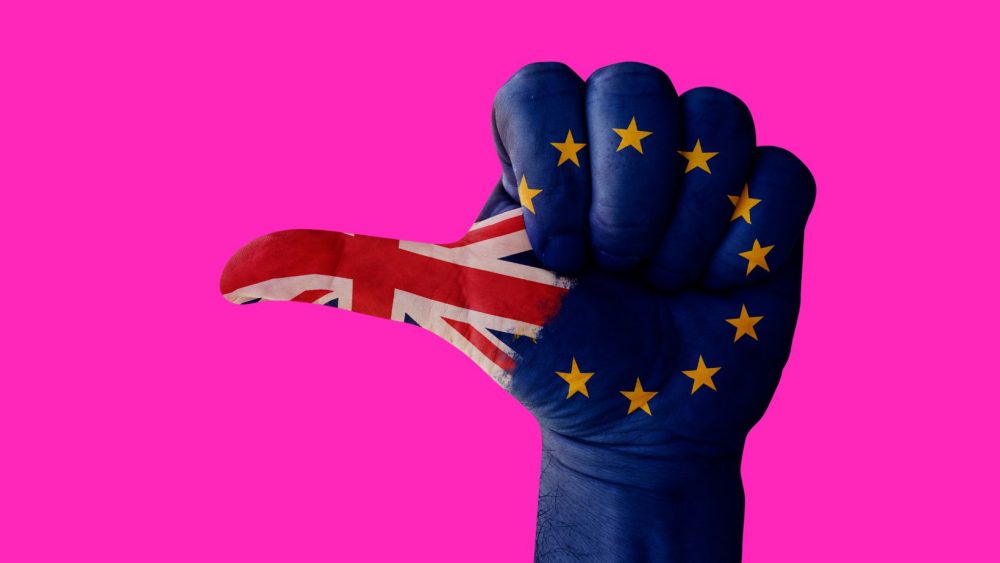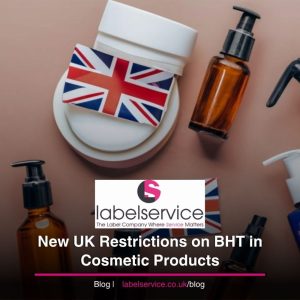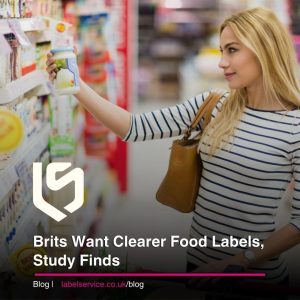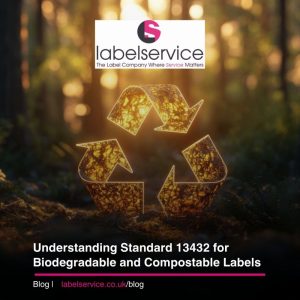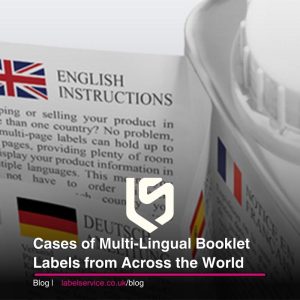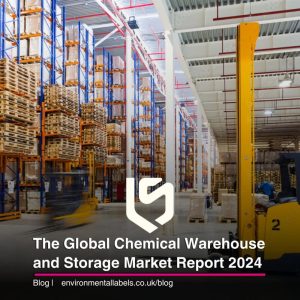In line with protecting consumers from unnecessary costs, the UK Government is delaying food labelling rule changes that were due to apply from 1 October 2022, until 1 January 2024. In general, delaying these labelling requirements will mean that some labelling terms and EU addresses (in relation to the importer or Food Business Operator address requirement) will continue to be permitted on the GB market for an additional 15 months. Following formal agreement from both Welsh and Scottish Government, these changes will apply across the whole of GB.
The UK government has announced this delay to remaining import controls on EU goods entering Great Britain in light of the current supply chain woes caused by the war in Ukraine and the rise in global energy costs. New Brexit labelling rules affecting a swathe of food products coming into the country from the EU that were due to come into force on 1 October 2022 have now been postponed to 1 January 2024.
Defra said in an official statement that the decision was “in line with protecting consumers from unnecessary costs”. The legislation was set to affect labelling on goods coming from the bloc into GB market, including beef and veal, minced meat, olive oil, fruit & vegetables and wine.
Other major food labelling changes that were set to be enforced next month related to Food Business Operator (FBO) addresses, as products from EU producers would be required to have a UK-based vendor or importer address on the label. However, this meant separate labels would be needed for products intended for the GB market, which would likely result in higher costs for suppliers and importers.
Delaying the labelling requirements will mean that said labelling terms and EU addresses will continue to be permitted on the GB market for an additional 15 months, which would “help UK food businesses” according to Defra. Furthermore, the deadline to use “UK/EC” identification marks – required on products of animal origin – in GB has also been extended to 1 January 2024. The government said this would allow FBOs to continue to deplete existing stocks of labels, wrapping and packaging until the new rules come into force.
Industry bodies have been calling for a relaxation of labelling laws for months, particularly following the effects the Ukraine war had on oil exports and the wider supply chain. “The government has concluded that in this context it would be wrong to impose new administrative requirements on businesses who may pass on the associated costs to consumers already facing pressures on their finances,” said the British Frozen Food Federation.
Earlier this week, the BFFF called for Liz Truss to “act immediately to address the cost of production crisis being faced by UK manufacturers”. “There has rightly been a great deal of focus on the rising costs of energy, but less debate about the knock-on effects it is having on businesses that keep the country fed,” said CEO Rupert Ashby. “Our members have been hit with a triple whammy of rising costs for ingredients, packaging and transport, all of which are driving up production costs, which will have to be passed on to consumers if they are to stay in business. This will drive up the cost of the weekly shop, making feeding a family unaffordable for many people.”
Marks and Spencer
Marks & Spencer has urged the UK government not to consider separate labelling for goods sold in Northern Ireland during talks with the EU about improving post-Brexit trade arrangements, arguing that it would be too costly for retailers and customers.
The retailer’s chair, Archie Norman, has written to the foreign secretary, James Cleverly, arguing the requirement would not be a useful change to the Northern Ireland protocol and would create “overbearing and prohibitive costs” for exporters. The intervention comes as talks are continuing between the UK and the EU over possible changes to the controversial post-Brexit protocol to make it operate better, after unionist anger over its checks on trade between Great Britain and Northern Ireland led to violence and the suspension of the Stormont assembly. Both sides have previously suggested that additional labelling could help to reduce the need for checks on goods and import controls.
M&S, which has operated in Northern Ireland for more than 50 years, is cautioning that additional labelling would be costly, and would therefore reduce availability and choice for customers in Northern Ireland and lead to higher prices at a time of high food inflation.
Norman says in the letter: “There are two variants to the labelling proposals, either Northern Ireland-specific labels or UK-wide labels. Both incur the same problem for those retailers or manufacturers operating in both Northern Ireland and Ireland.” The food and homeware retailer said it sent between 7% and 9% of its sales to Northern Ireland. It warned that specific labelling of products to be sold there would require “specific production runs and segregated stock”, adding this would add extra cost for “packaging changes on every production run”, which would be particularly challenging for small suppliers.
In addition, the retailer wrote that UK-only labelling of all products subject to sanitary and phytosanitary checks – for products of animal or plant origin, including meat and fish – would be “an even worse outcome for M&S”. This would require goods being exported to the Republic of Ireland or elsewhere to have “separate production runs, packaging and segregated stock”, Norman said, adding this would “completely undermine the ‘all Ireland supply’ we have set up to help get around the current issues”. It is understood that the UK has not ruled out the possible use of labelling of products.
Norman’s letter, first reported by the BBC, instead suggests that the EU and UK consider “digital tracing” of goods, which he described as “a far better, more modern and lower cost solution”. He adds that this would remove the needs for physical checks and labelling of products intended for Northern Ireland, as it provides a clear view on where goods are sent, and describes this tracing as “very common in the food industry”.
Norman, a former Conservative MP, has previously backed government plans to override parts of the protocol, criticising “pointless” post-Brexit rules for sending food to the EU, given British food standards were in line with or higher than those made by Brussels. He said last year that some food exported to the Republic of Ireland required 700 pages of customs documents, parts of which were written in Latin.
A labelling regime would “raise prices and reduce choice for consumers, further disadvantage UK farmers and suppliers and impact UK retailers competitiveness in other international markets,” Norman said. He called it “baffling” in a digital age that “the government and EU have rewound four decades to discuss an expensive ‘solution’ involving stickers and labelling”.
Placing Goods for the GB Market
How an individual food is currently labelled will determine whether it is affected.
The advice below is for businesses placing goods on the GB market:
- Food Business Operator Addresses
The existing rules stipulate that you must include a business name and address on the packaging or food label of prepacked food products. This must be either:
- the name of the business under whose name the food is marketed
- the address of the business that has imported the food
For Food Business Operator addresses (FBO):
- You can continue to use either an EU, GB or NI address for the FBO on pre-packaged food or caseins placed on the market in GB until 31 December 2023.
- From 1 January 2024, prepacked food or caseins sold in GB – including caseins sold in
business-to-business transactions – must include a UK address for the FBO. If the FBO is not in the UK, include the address of your importer, based in the UK.
- Quick frozen foods
For Quick-frozen foodstuffs placed on the GB market:
- You can continue to use an EU address until 31 December 2023.
- From 1 January 2024, the packaging, container, or label of quick-frozen foodstuffs sold in GB must include the name or business name and address of the manufacturer or packer or of a seller established in the UK who places that foodstuff on the market.
- Extraction solvents
For extraction solvents placed on the GB market
- You can continue to use an EU address until 31 December 2023.
- From 1 January 2024, the packaging, container, or label of extraction solvents sold in GB
must include the name or business name and address of the manufacturer or packer or of a
seller established in the UK.
- Caseins and Caseinates
For caseins and caseinates placed on the GB market:
- You can continue to use an EU address until 31 December 2023.
- From 1 January 2024, the packaging, container, or label of caseins and caseinates sold in GB must include the name or business name and address of the manufacturer or packer or of a seller established in the UK.
- Beef and veal labelling
For beef and veal placed on the GB market:
- You can (where appropriate) continue to refer to ‘EU’ or ‘non-EU’ when the label does not
list each country of origin until 31 December 2023.
- From 1 January 2024, you must use ’UK’ or ‘non-UK’ when the label does not list each
country of origin.
- Minced meat labelling (goat, sheep, swine and poultry)
For minced meat placed on the GB market:
- You can continue to refer to ‘EU’ and ‘non-EU’ when the label does not list each country of
origin until 31 December 2023.
- From 1 January 2024, you must use ‘UK’ or ‘non-UK’ when the label does not list each
country of origin.
- Honey blends labelling
For honey blends placed on the market in England and Wales:
- You can continue to refer to ‘EU’ and ‘non-EU’ when the label does not list each country of
origin until 31 December 2023.
- From 1 January 2024, you must use ‘blend of honeys from more than one country’ (or
similar wording) if you decide not to list each country of origin.
For honey blends sold in Scotland you can make reference to trading blocs including EU and non-EU and can continue to do so after 31st December 2023.
- Olive oil labelling
For olive oil blends placed on the GB market:
- You can continue to refer to ‘EU’ and ‘non-EU’ when the label does not list each country of
origin until 31 December 2023.
- From 1 January 2024, you cannot use the term ‘non-EU’ for olive oil blends sold in GB.
If your extra virgin or virgin olive oil is a blend of oils from different countries, the label must contain one of the following:
- a list of each country of origin
- the statement ‘blend of olive oils from more than one country’ or similar wording
- the name of the trading bloc to which a regional trade agreement applies, for example
‘blend of olive oils of European Union origin’.
- Fruit and vegetable labelling
For mixes of fruit and vegetables sold in GB:
- You can continue to refer to ‘EU’ and ‘non-EU’ when the label does not list each country of
origin until 31 December 2023.
- From 1 January 2024, you must use ‘non-UK’ or ‘UK and non-UK’ when the label does not list each country of origin.
If you’re part of the Approved Trader Scheme, you must remove the EU emblem from your UK food labels and use the replacement GB label from 1 January 2021.
- Egg labelling
For eggs sold in GB:
- In GB you can continue to mark eggs that do not meet domestic egg trade regulations as
‘non-EC standard’ or ‘non-UK standard’ until 31 December 2023.
- From 1 January 2024, you should mark these eggs as ‘non-UK standard’.
- Wine labelling
Wine that you import and market in GB must have wine labels with the address of a UK based importer or bottler, or both.
- You can continue to use an EU importer or bottler’s details until 31 December 2023.
- Identification marks
To further help UK Food businesses, the use of “UK/EC” identification marks (required on products of animal origin) will continue until 31 December 2023. This is for Products Of Animal Origin (POAO) placed on the market in Great Britain. It is not applicable to POAO produced in the UK for placing on the EU, Northern Ireland or non-EU markets.
This would allow FBOs to continue to deplete existing stocks of labels, wrapping and packaging carrying the ‘UK/EC’ identification mark owned by the food business operator at the end of the Transition Period. The provision started from 1 January 2021 and is only available for food businesses up to 31 December 2023.
This delay is not intended to enable businesses to replenish stocks of labels, wrapping and packaging carrying the ‘UK/EC’ identification mark after the end of the Transition Period. Businesses have been encouraged to adopt the new markings as soon as possible following the end of the Transition Period.


